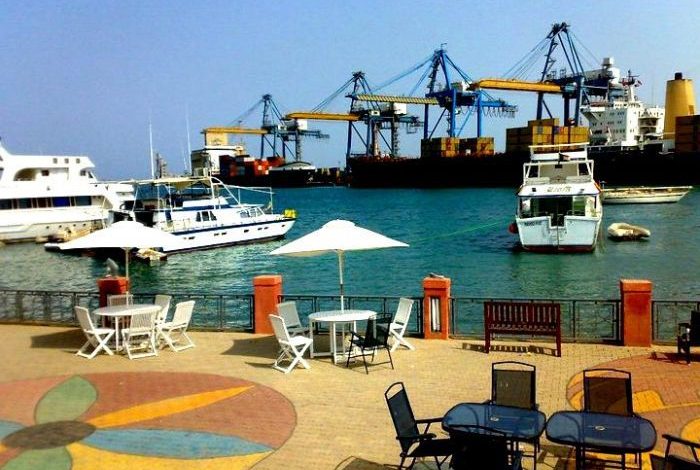War and Government – The defeat of Sudan’s exports

Report – Rehab Abdullah
One of the repercussions of the war between the Sudanese army and the Rpid Support militia (RSF) is that the Sudanese economy experiences a decline in Sudanese exports to $32 million per month, according to the Chamber of Commerce. However, the shocking thing is that the reason for the decline in exports was not limited to the war only, but that there are government obstacles that obliterated the exports.
Although Sudan’s total exports in 2022 amounted to about 4 billion dollars, and the value of Sudan’s exports of cotton, peanuts, and Arabic gum reached about 2 billion dollars, the economic advisor and specialist in financial markets Abdel Azim Al-Umawy explained in a statement via the platform of the Freedom and Change Forces – the Central Council on ” Facebook that “The foreign trade data issued by the Sudanese Sources Chamber confirmed the deterioration of exports between May 17 and July 17, 2023, during the war period to (32) million US dollars per month, while exports amounted to (400) million US dollars on average during the transitional government period.”
The member of the Chamber of Commerce, Ibrahim Al -Kinani, confirmed in a shocking interview that Sudanese exports decreased during the war period in Sudan by 75% based on the information in the Chamber, and he attributed this to Sudan Events to the first month of the war during which the procedures stumbled due to the stopping of the state wheel. However, he revealed after that that they were exposed to large obstacles from government agencies, including the Ministry of Forests and Ministry of Zakat, which take 25% of the value of the product, customs, specifications and taxes. He also added that government agencies considered all the fees paid before the war ineffective, and imposed new fees, especially the Ministry of Forests. As a result, Al-Kinani indicated that this increased the cost of exports by 30%, in addition to the challenges that faced the currency exchange rate. He criticized the Bank of Sudan and banks in general, as well as the Ministry of Commerce in their delay in export procedures and said: ” The Bank of Sudan was able to keep up only two months after the beginning of the war.” He held it it responsible for the failure to reach export outcomes in terms of that it considers the conditions normal and the outcomes are supposed to come at the official price.
Al-kinani also indicated that the exchange rate has deteriorated significantly, as the value of the Sudanese pound deteriorated by 50% because its price today exceeded a thousand pounds, and expected the economy to deteriorate, pointing out that international funds expected the Sudanese economy to be slowed down. He also warned against collapse in terms of the state now unable to pay salaries.
He criticized the deficit of officials from managing the economic file during the war, noting the expectations of the decrease in agriculture revenues by 50% because there is no financing which is considered to be a deficit in the trade balance.
Al -Kinani indicated that the lack of policies attracting the exports and facilitating the gain of outcome revenue and reducing the cost.
Al-Kinani also added, “The export commodities suffer from scarcity and cost 70% of the export price.”
According to his statement, there is no government agency concerned with the public interest, and attributed this to the fact that the authority insists on imposing fees for obstructing the Sudanese export, pointing to the multiplicity of fee collection parties.
He revealed that the two most important commodities equivalent to 70% of the revenues of export (sesame, peanuts) faced this year obstacles that prevented their export, this is because of the increase of local sesame prices up to 50% dues to fees to become more than the global price. This is because government agencies take more than 50% of the expenses such as customs, taxes, as well as corruption in the road, and traffic permits. Al -Kinani affiemed that the exporter does not export if they does not have a profit,” and he added, “There is no party interested in the flow of exports,” adding that the cost of deportation is equivalent to 10% of the value of the product from El- Obeid for example, to Port Sudan, and these are costs that cannot be exported.
(Sudan Events) tried to obtain some inquiries from the Ministry of Foreign Trade, but the director of the export administration apologized that he is not in Port Sudan now and that is an acceptable excuse. I was then transferred to the foreign trade official responsible now in Port Sudan, but she turned me to the undersecretary who referred the matter again to the director of foreign trade, “Sanaa”, who apologized from answering the newspaper’s inquiries.



